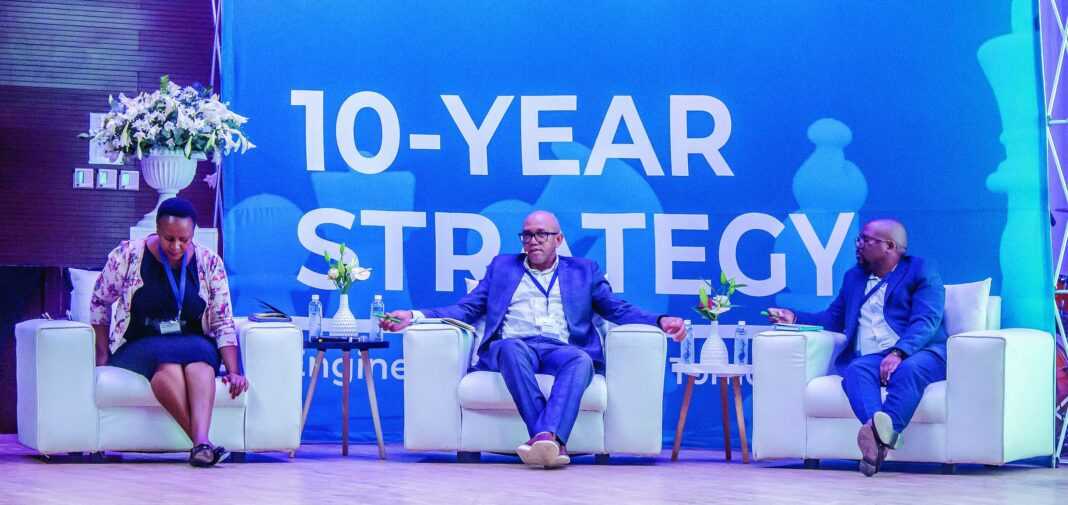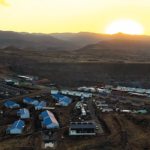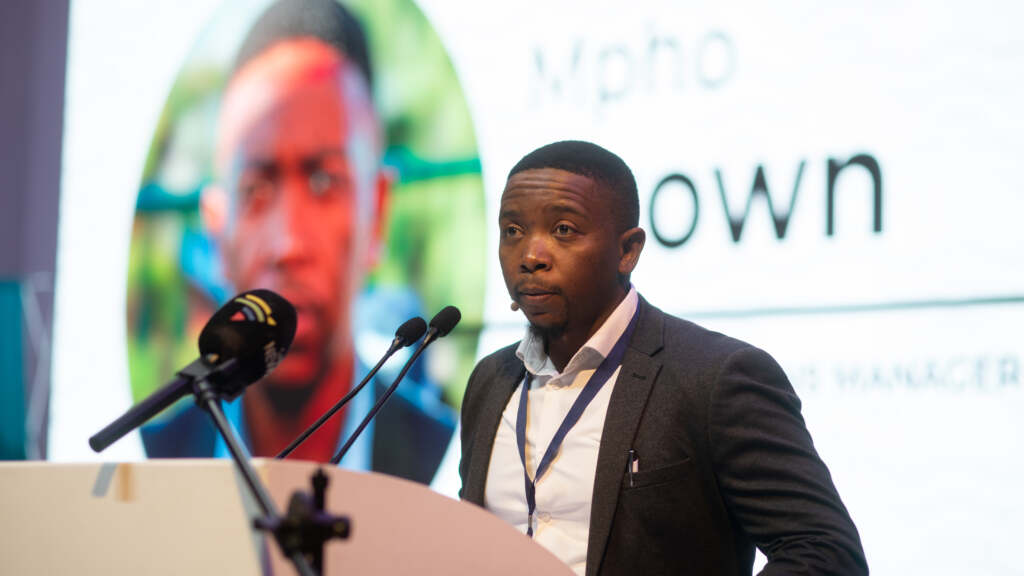Bereng Mpaki
The recently launched 10-year strategy of the Lesotho Highlands Development Authority (LHDA) will directly tackle some of its key challenges and learnings that it has collected in the past few decades of implementing the Lesotho Highlands Water Project (LHWP).
Through the new strategy, the LHDA is committed to amplifying and improving its areas of work that have in the past flown under the radar, according to the LHDA’s Chief Executive Tente Tente.
The new strategy was unveiled during the recent LHDA’s stakeholder conference, where key stakeholders of the LHWP were furnished with information on the history, recent developments, and lessons learned during the implementation of the project to date.
“We believe in holding ourselves accountable when we fall short. The new Strategy presents us with an opportunity to redefine our vision and prioritize the delivery of sustainable value for communities impacted by the project, and Basotho in general. Furthermore, we realise that while still delivering on the traditional core objectives of water delivery and electricity generation, the LHWP can and should meaningfully contribute to social and economic transformation aspirations of the two (2) Parties to the Treaty when they established the LHWP,” Tente said.
The conference also provided a platform for receiving feedback and collecting insights from different project stakeholders.
Some of the common areas of public interest that were raised include payment of legacy compensation, a desire for compensation policies to reflect the current needs of communities, and delayed implementation of community development projects. Representatives of communities recommended that LHDA should improve complaints management systems and turnaround times for addressing community concerns.
Tente explained that the conference was exactly what LHDA needed to ensure that the new strategy does in fact address stakeholder areas of interest, many of which the LHDA already knew and had been taken into consideration in formulating the new strategy..
He said various lessons learned from the implementation of Phase I of the LHWP have been incorporated into the new strategy. Currently, the implementation of the second phase of the LHWP is in full swing, with major construction milestones already notched to date.
“The new LHDA strategy is an important commitment and plan by the LHDA to amplify those areas of our work that have for a long time flown under the radar, and ensure direct and intentional beneficiation for Basotho and Lesotho, from the Lesotho Highlands Water Project,” Tente said.
He further indicated that the strategy identifies five strategic goals which must be achieved to realise the desired social and economic transformation aspirations of the LHWP. These include the enhancement of inclusive access to water and electricity, conservation and restoration of ecosystems, improvement of livelihoods, maximisation of commercial opportunities, and good corporate governance and accountability.
Tente added that they were demonstrating their commitment to rectifying the shortfalls of the past through their new strategy.
“The strategy recognises that LHDA’s shared values and belief systems and principles must be embedded in our budgeting, goal setting and in the evaluation of performance and outcomes for all the five Strategic Goals,” Tente said.
Lehlomela Stephen Phakisi, the chairman of the LHDA Board, said the strategy aspires to mend the project’s relationship with stakeholders.
“We believe this strategy will not only contribute towards significant value creation for material stakeholders and direct beneficiation to the affected people, but that it will also promote financial sustainability for the organisation and enhance stakeholder relationships and stakeholder inclusivity for sustainable outcomes,” Phakisi said.
Summary
- We realise that while still delivering on the traditional core objectives of water delivery and electricity generation, the LHWP can and should meaningfully contribute to social and economic transformation aspirations of the two (2) Parties to the Treaty when they established the LHWP,” Tente said.
- Tente explained that the conference was exactly what LHDA needed to ensure that the new strategy does in fact address stakeholder areas of interest, many of which the LHDA already knew and had been taken into consideration in formulating the new strategy.
- “The new LHDA strategy is an important commitment and plan by the LHDA to amplify those areas of our work that have for a long time flown under the radar, and ensure direct and intentional beneficiation for Basotho and Lesotho, from the Lesotho Highlands Water Project,” Tente said.

Your Trusted Source for News and Insights in Lesotho!
At Newsday Media, we are passionate about delivering accurate, timely, and engaging news and multimedia content to our diverse audience. Founded with the vision of revolutionizing the media landscape in Lesotho, we have grown into a leading hybrid media company that blends traditional journalism with innovative digital platforms.









